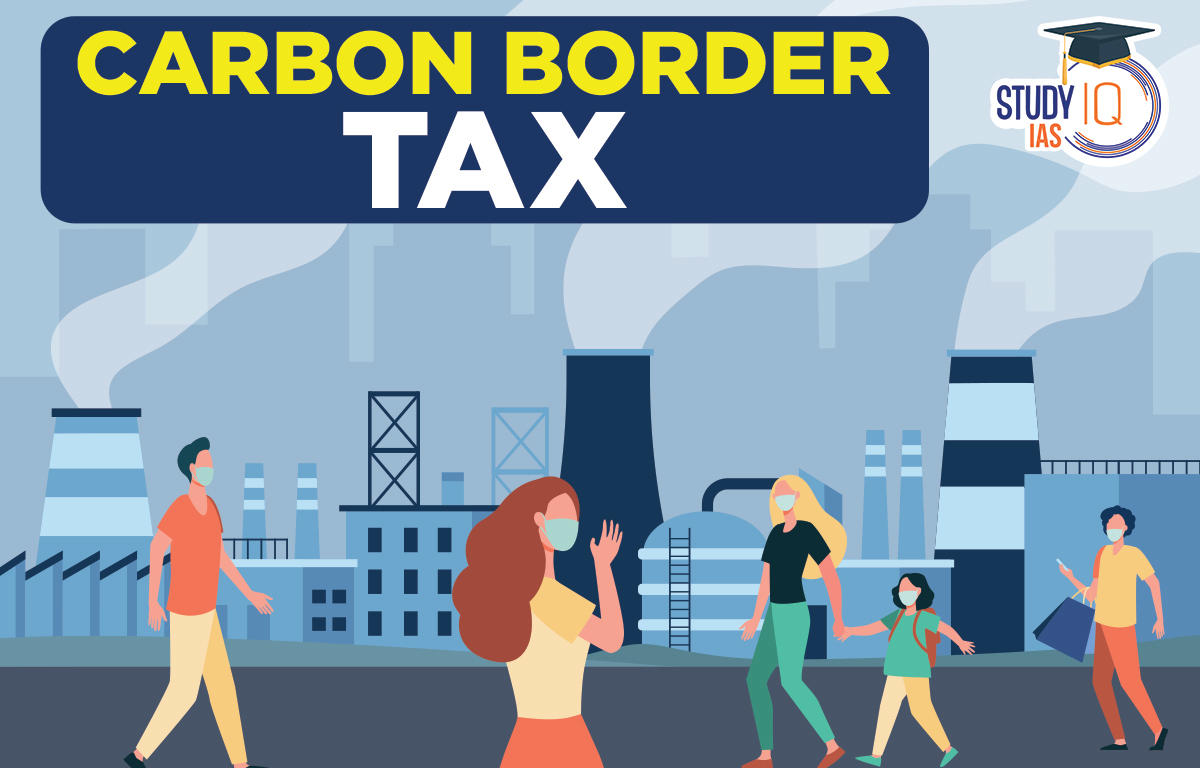Table of Contents
What are Carbon Border Taxes
- Carbon Border Tax is an idea of imposing an import duty on a product manufactured in a country with more lax climate rules than the one buying it.
- Need for such tax: In many developed countries, high costs have been imposed on carbon-intensive businesses in order to cut carbon emissions.
- These businesses have tried to avoid the measure by moving production to a country with less stringent rules, a practice called carbon leakage.
- Supporters of the idea, like EU, believe that the tax will benefit the environment and provide a level playing field to companies.
- Opposition: The opposing parties say that such tax puts the burden of climate compliance on developing countries. Historically, these countries have done much less to pollute the environment and yet are often more vulnerable to effects of climate change.
- It has been criticized as a protectionist device, shielding local industries from foreign competition in so-called ‘green protectionism’.
Carbon Border Tax News Article
- The BASIC (India, China, Brazil and South Africa) group said that unilateral measures and discriminatory practices, such as carbon border taxes, could cause market distortion and aggravate the trust deficit amongst Parties.
- They have asked for united solidarity response by developing countries to any unfair shifting of responsibilities from developed to developing countries.
Carbon Border Tax India Position
- Burden of climate change: India has opposed the move by developed countries to push the burden of doing more to tackle climate change while they evade responsibilities themselves.
- Not singling out fuel source: India has proposed phasing down of all fossil fuels and not just coal, which has been targeted by the developed countries and which India is heavily reliant on.
- Spirit of Paris Agreement: India has cited the spirit of the Paris Agreement, under which countries will do what is suitable as per their national circumstances.
- Just transition: Just transition to cleaner sources of energy does not mean that all countries should follow the same level of decarbonisation.
- India, for instance, needs to follow low-carbon development strategy over a time scale that will ensure food and energy security, growth, and employment, leaving no one behind in the process.
Carbon Border Tax Adjustment Mechanism of EU
- The EU proposed the Carbon Border Adjustment Mechanism in 2021. It was designed in compliance with World Trade Organization (WTO) rules and EU’s other international obligations.
- Objective: CBAM will equalize the price of carbon between domestic products and imports, ensuring that the EU’s climate objectives are not undermined by production relocating to countries with less ambitious policies.
- Through CBAM, the EU claims to promote fair competition, leveling the playing field between EU and non-EU businesses.
- Working of Carbon Border Adjustment Mechanism (CBAM):
- EU importers need to buy carbon certificates based on the carbon price that would have been paid, had the goods been produced under the EU’s carbon pricing rules.
- The price of the certificates would be calculated based on the auction prices in the EU carbon credit markets.
- The amount of certificates required would be yearly defined by the quantity of goods and the embedded emissions in those goods imported into the EU.
- Initially, the CABM would apply to imports of cement, iron and steel, aluminium, fertilizers and electricity.
- In case a non-EU producer is able to show that they have already paid a price for the carbon used in the production of the imported goods in a third country, the carbon cost can be fully deducted for the EU importer.
- Implications: Partner trade countries could retaliate against imports coming from the EU. Countries may impose barriers on EU imports in response.

























 WhatsApp
WhatsApp